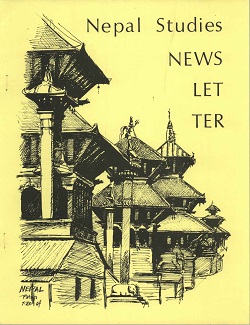Author Biography
Holly Gayley is Assistant Professor in the Department of Religious Studies at the University of Colorado, Boulder. Her current research explores the revitalization of Buddhism in Tibetan areas of the PRC and a new ethical reform movement spawned by cleric-scholars at Larung Buddhist Academy in Serta. Her recent publications on the topic include: "Reimagining Buddhist Ethics on the Tibetan Plateau (Journal of Buddhist Ethics, 2013) and "The Ethics of Cultural Survival: A Buddhist Vision of Progress in Mkhan po 'Jigs phun's Advice to Tibetans of the 21st Century" in Mapping the Modern in Tibet (International Institute for Tibetan and Buddhist Studies, 2011).
Abstract
This article explores the online debate in the Tibetan-language blogosphere over a burgeoning ethical reform movement. Annually, whole villages and clans in nomadic areas along the eastern reaches of the Tibetan plateau are committing to a newly formulated set of ten Buddhist virtues that include vows not to sell yaks for slaughter, not to fight with weapons, and not to drink, smoke, or gamble. Spearheaded by Khenpo Tsultrim Lodrö and cleric-scholars at Larung Buddhist Academy concerned with the erosion of social values in the face of state modernization policies, novel vow ceremonies have generated a new level of commitment to Buddhist ethics among Tibetan nomads while spawning controversy over the role of religion in the public sphere. A set of virulent critiques of ethical reform have appeared since 2012 in Tibetan blog posts by well-known intellectuals like Jamyang Kyi and Notreng. This article examines the secular terms through which clerical authority is criticized in the Tibetan blogosphere and several responses that address the polarizing tendency of online debate due to the circulation of misinformation and slander. How is the Tibetan blogosphere creating a new public forum for the secular critique of religion? On what grounds are Tibetan bloggers challenging Buddhist clerical authority online? How do monastics and their supporters advocate, in response, for the role of Buddhism in governing Tibetan social values and practices?
Acknowledgements
The author would like to express appreciation to the Buddhist leaders who took time to meet and discuss the new ten virtues between 2011 and 2015, especially Khenpo Tsultrim Lodrö and Tulku Tendzin Dargyé. This article about debate over ethical reform in the Tibetan blogosphere would not have been possible without the initial input of Tsering Shakya and Françoise Robin, who shared links to seminal blog posts on this topic. Thanks to Dolma Kyab, the research assistant for this project who spent many tireless hours sorting through Tibetan blog posts and comments; to Professor Padmatso who helped with interviews in 2014 as she and the author embarked on a related collaborative research project; to colleagues at the pioneering conference on Describing Tibetan Cyberspace held at Columbia University in May 2015 which sketched a rough chronology of Tibetan-language internet usage and raised several of the issues discussed in this article; and finally to Françoise Robin, Nicole Willock, and an anonymous reviewer for their helpful suggestions on the penultimate version of this article.
Creative Commons License

This work is licensed under a Creative Commons Attribution-Noncommercial-No Derivative Works 4.0 License.
Recommended Citation
Gayley, Holly. 2016. Controversy over Buddhist Ethical Reform: A Secular Critique of Clerical Authority in the Tibetan Blogosphere. HIMALAYA 36(1).
Available at:
https://digitalcommons.macalester.edu/himalaya/vol36/iss1/9


